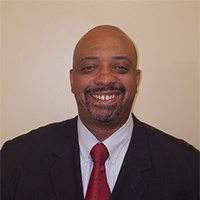Williamsburg Criminal Lawyer, Virginia
Sponsored Law Firm
-
 x
x

Click For More Info:
-
Tillotson & Martin, LLP
DWI/DUI Defense throughout the Entire Commonwealth of Virginia » view mapCriminal Defense Virginia’s Premier DWI/DUI Defense Firm
Michael C. Tillotson is the one to choose when it comes to DWI/DUI defense in Virginia.
800-878-1431
Stephen Foster Forbes
✓ VERIFIED *Status is reviewed annually. For latest information visit hereAttorney Stephen F. Forbes has been practicing law in Hampton Roads since 1982. As the owner and primary litigator of Forbes Law Firm, he represents s... (more)
Wayne Holcomb
✓ VERIFIED *Status is reviewed annually. For latest information visit hereWelcome to Holcomb Law. Right now, what you need is information, right? Even before you hire us, we are committed to getting you free information to h... (more)
Michael Carl Tillotson
✓ VERIFIED *Status is reviewed annually. For latest information visit hereI strongly believe that if you are accused of a DUI/DWI, you deserve the best representation possible. This includes having an attorney who knows ever... (more)
Jeffrey Cantwell Martin
✓ VERIFIED *Status is reviewed annually. For latest information visit hereMr. Martin received his undergraduate degree from Towson University, where he graduated summa cum laude with a host of scholarships and awards. While ... (more)
Terrence K. Martin
✓ VERIFIED *Status is reviewed annually. For latest information visit hereI am attorney Terrence K. martin of the Law Office of Terry Martin and Associates. I know that my clients come to me in times of real need, and I am c... (more)
Doug Hazelton
✓ VERIFIED *Status is reviewed annually. For latest information visit hereDoug practices exclusively in the area of DWI and criminal defense. He represents clients throughout the Commonwealth of Virginia and is also licensed... (more)
Paul Freeman
✓ VERIFIED *Status is reviewed annually. For latest information visit hereLawyer Paul Freeman earned his Bachelor of Science degree at Norfolk State University and his master’s degree at the same university. Following his ... (more)
Polly Chong
FREE CONSULTATION
CONTACT Michael Tillotson Newport News, VA
Michael Tillotson Newport News, VA AboutTillotson & Martin, LLP
AboutTillotson & Martin, LLP Practice AreasExpertise
Practice AreasExpertise






